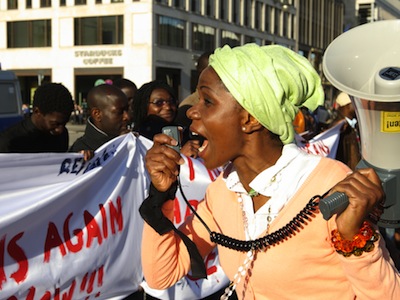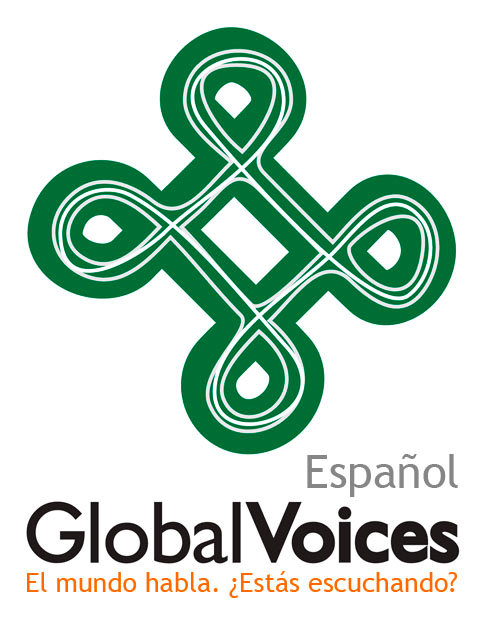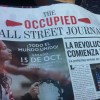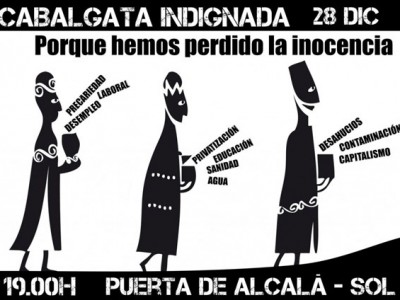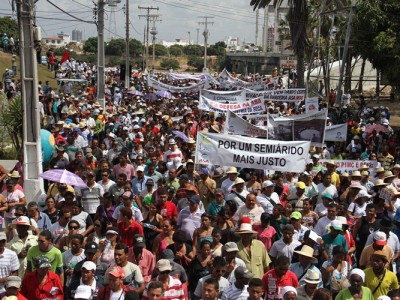Stories from 2 January 2012
From Sidi Bouzid to Kinshasa: Francophone Africa in 2011
The usual year-end review would hardly do justice to the epic changes that have turned Francophone Africa upside down, driven by the collective courage of its citizens who often faced violent repression while striving for emancipation from various dictatorships. Through the eyes of local citizen media, here are the highlights of 2011.
The World is Talking… We Translate
Some members of the Global Voices Spanish team of translators share their ideas and thoughts about some of the posts that they worked on during 2011 that impressed and impacted the most on them.
Bhutan: Drug Shortage
Tshering Tobgay analyzes the recent shortage of medicine in Bhutan and the lack of efficient drug procurement system.
Nepal: The Benefit Of Being A Celebrity
XNepali translates a news where we learn that a Nepali actress got her lost suitcase back from a taxi driver after the news of the loss was covered in a local newspaper.
2011: The Worst Year in Malawi’s History?
When the year 2011 began, everyone hoped for better amidst fuel, foreign exchange and political challenges. Most Malawians did not expect that the fuel lines will be even longer at the end of the year. This reflected the growing economic challenges in the country affecting Malawians across the country.
United States: Occupy Wall Street Also Speaks Spanish
Activist Mariné Pérez talks about coordinating the Spanish translation of the Occupy Wall Street Journal in New York, the relationship with traditional mass media, the impact of the removal of protesters from Zuccotti Park, and the plans to launch a new newspaper with original content in Spanish focused on the immigrant and Latino communities in the United States.
Spain: The #15M Celebrate Christmas With Outrage
Under the slogan "We've lost our innocence because we no longer believe the lies, nor will we stay silent before this joke of losing our basic rights," Spain celebrated the #IndignantProcession in some of the country's main cities.
Caucasus: The Year in Review
As popular uprisings spread through the Middle East and North Africa in 2011, opposition forces tried to replicate the Arab Spring in the South Caucasus. However, they failed.
Brazil: Mobilization for the Right to Sustainable Water Cisterns
A civil society group in the interior of northeast Brazil has been developing participatory alternatives to guarantee access to water to regions affected by desertification. The Federal Government suspended its partnership with the group and planned to increase government control over the water cistern project. In December, people mobilized sufficient pressure and the original agreement has been reinstated.

